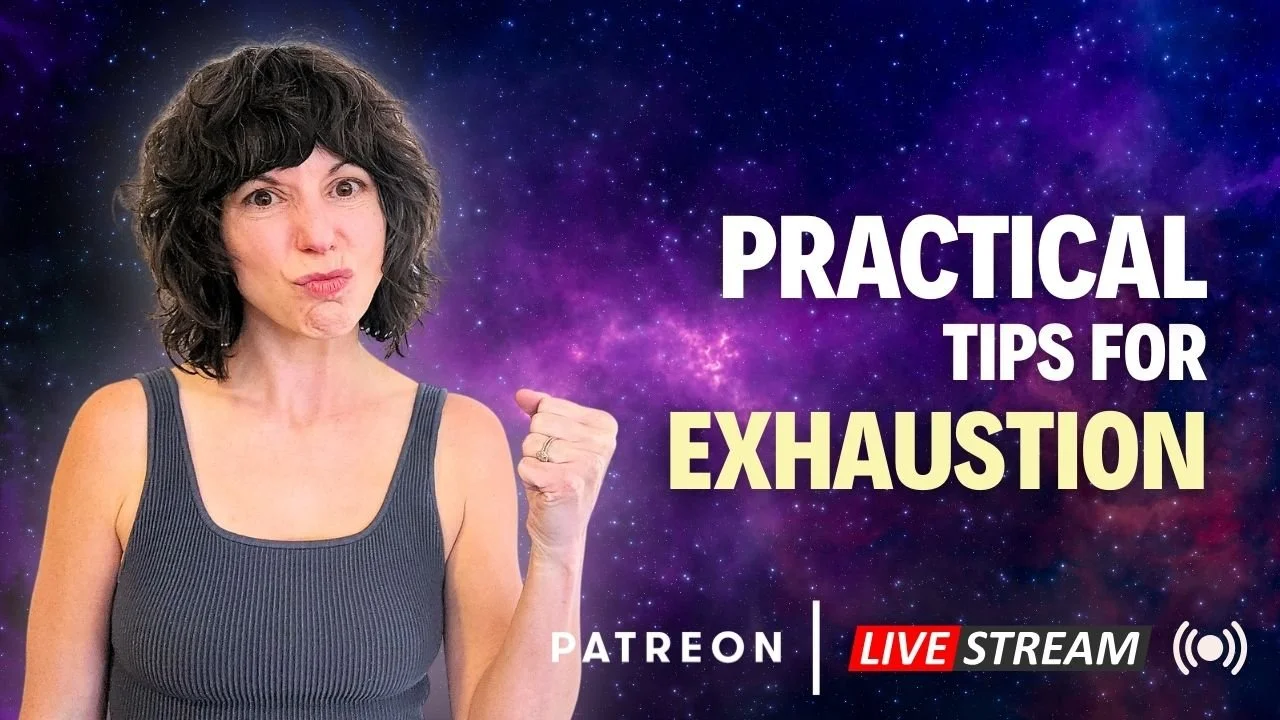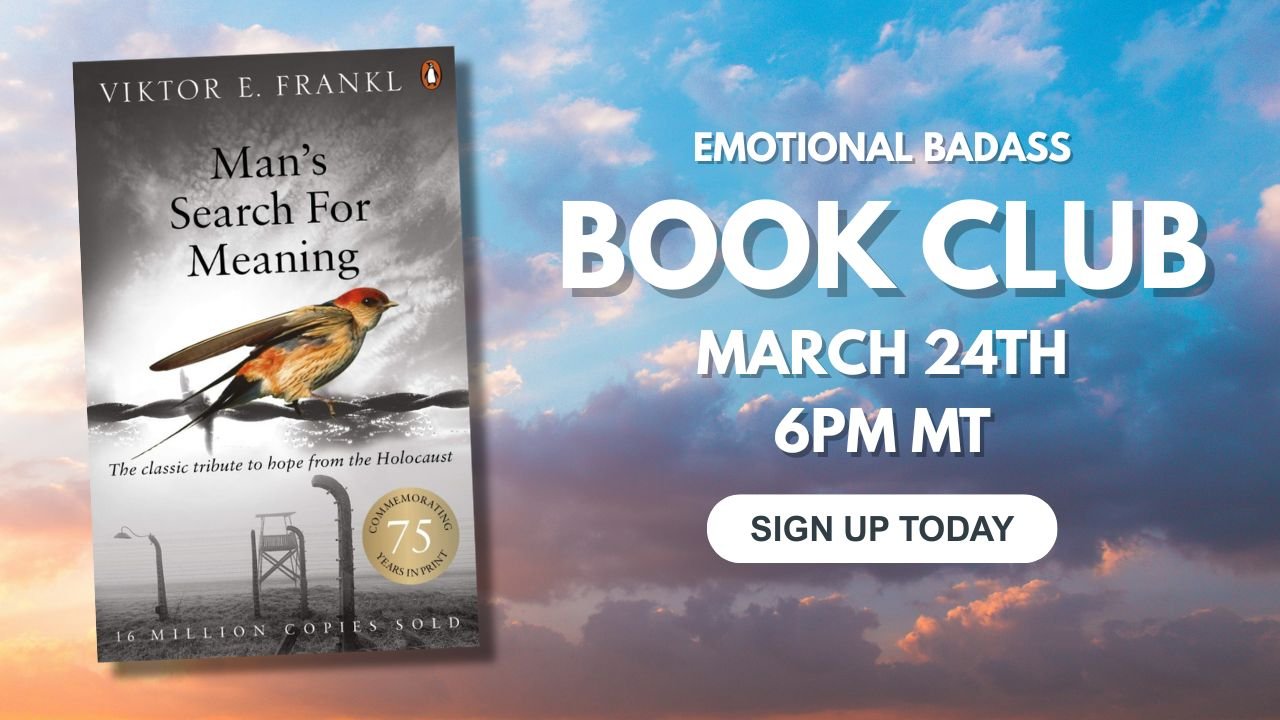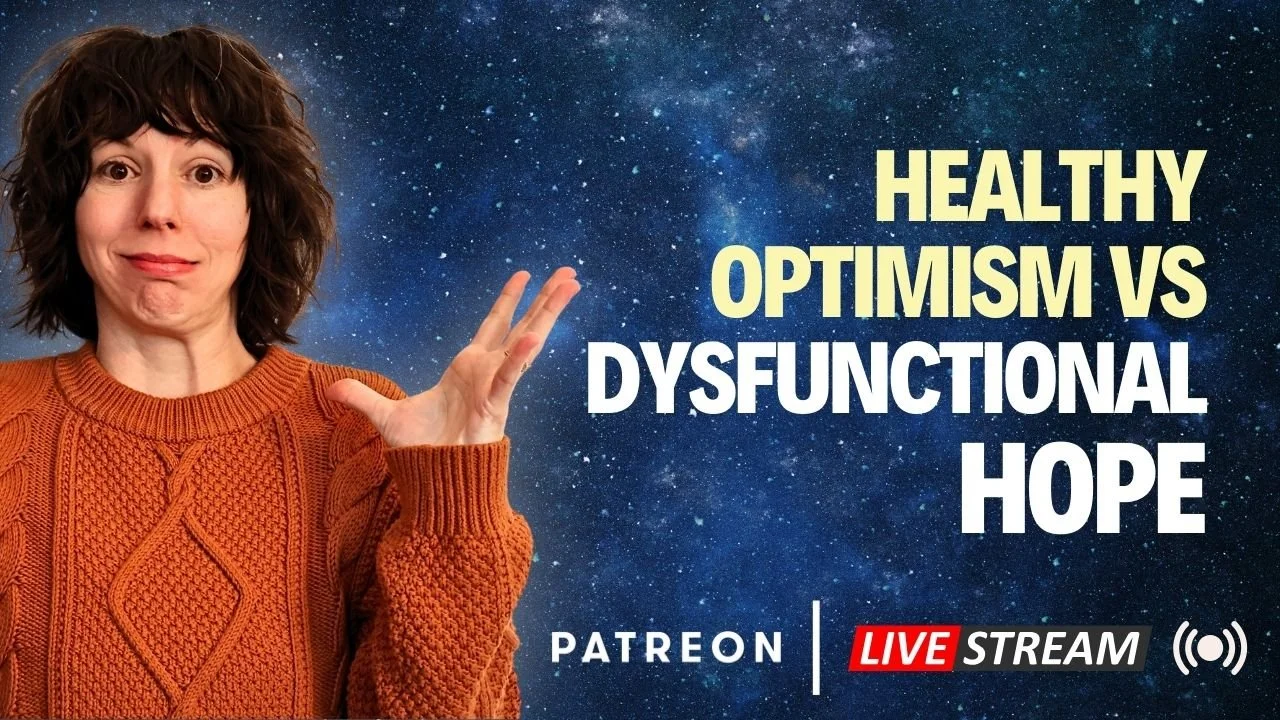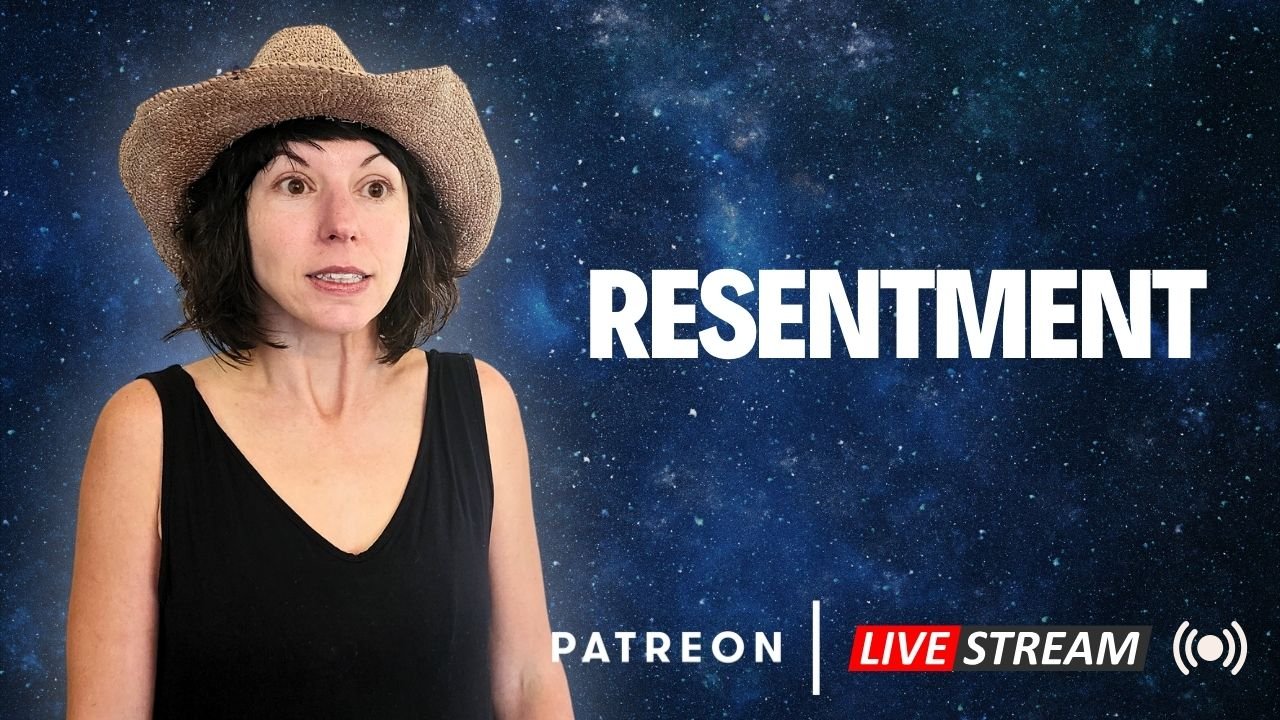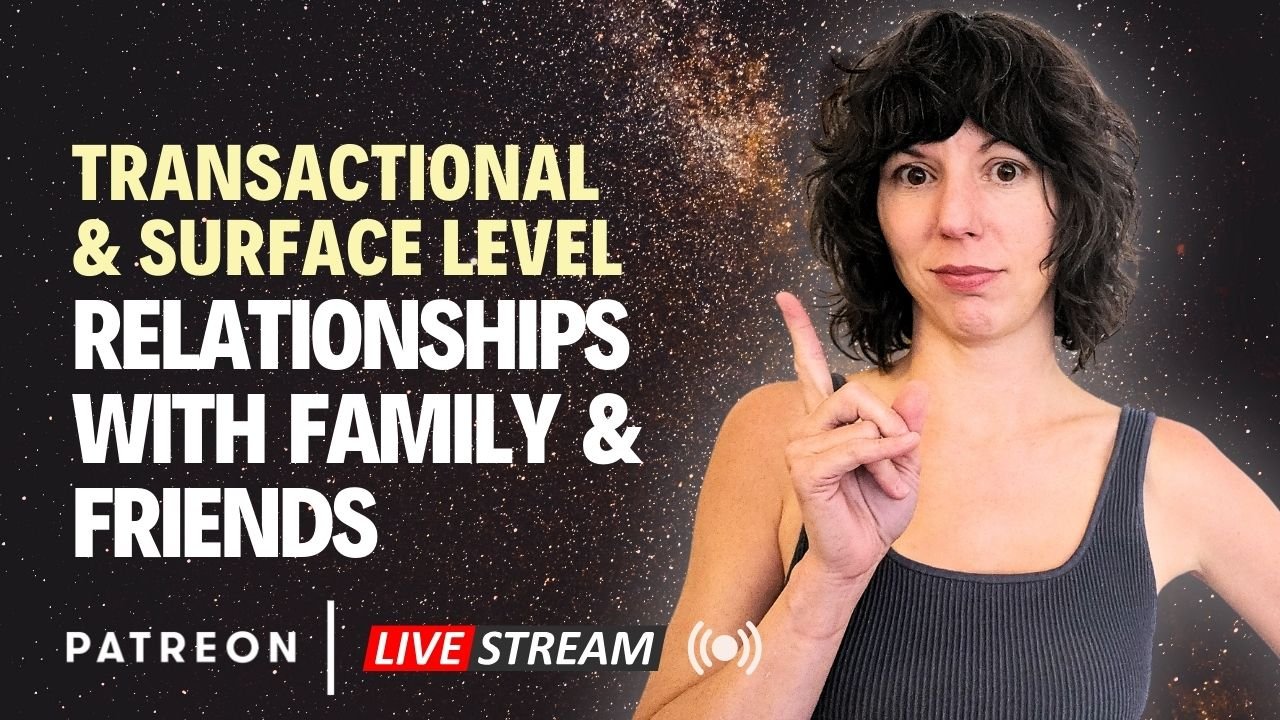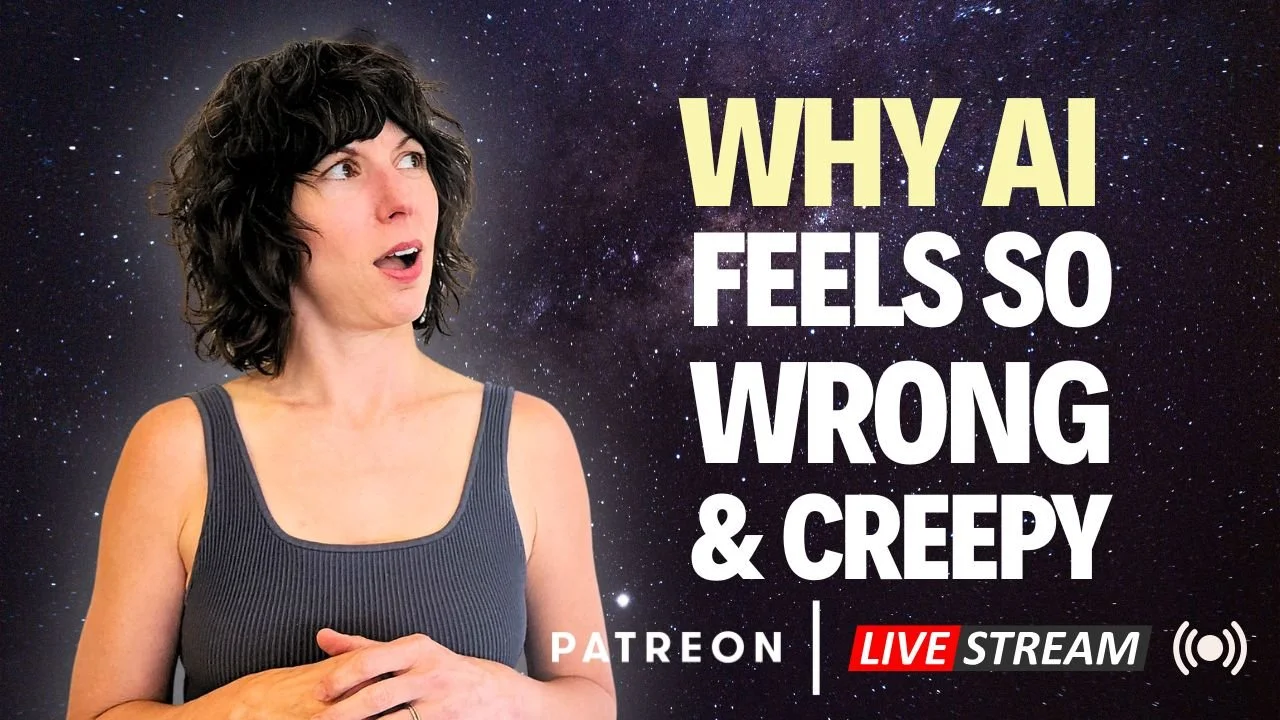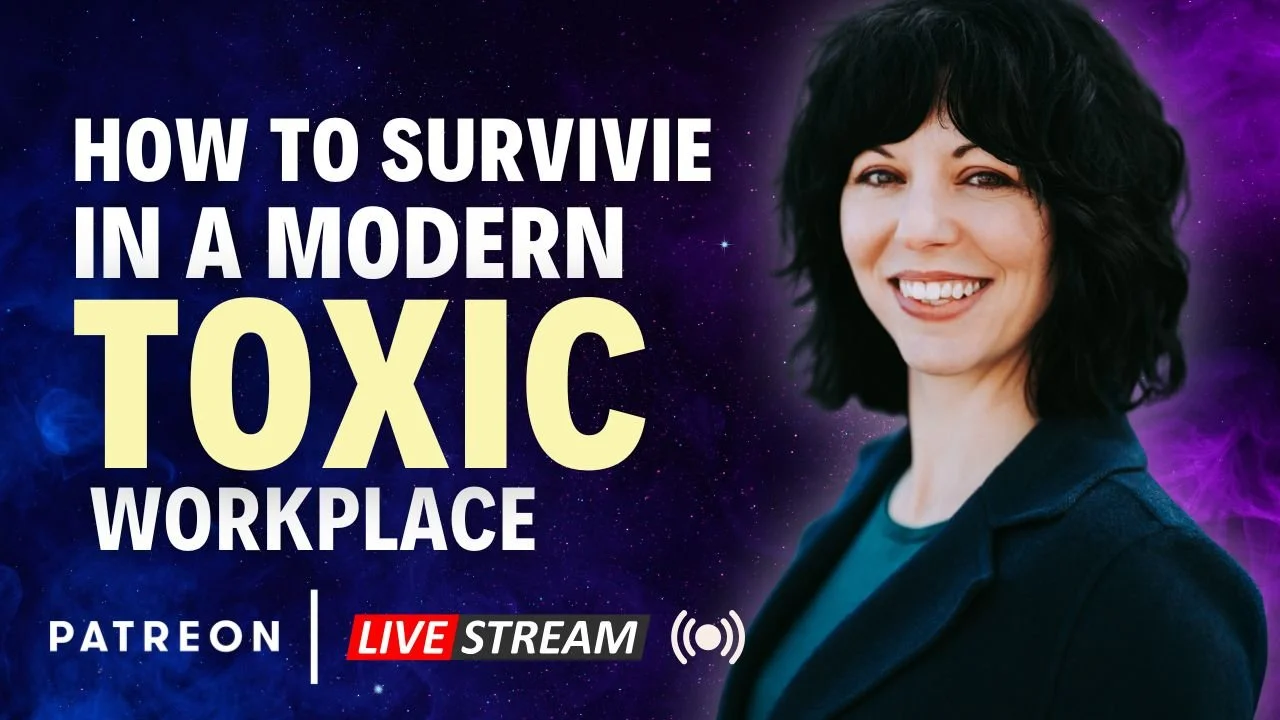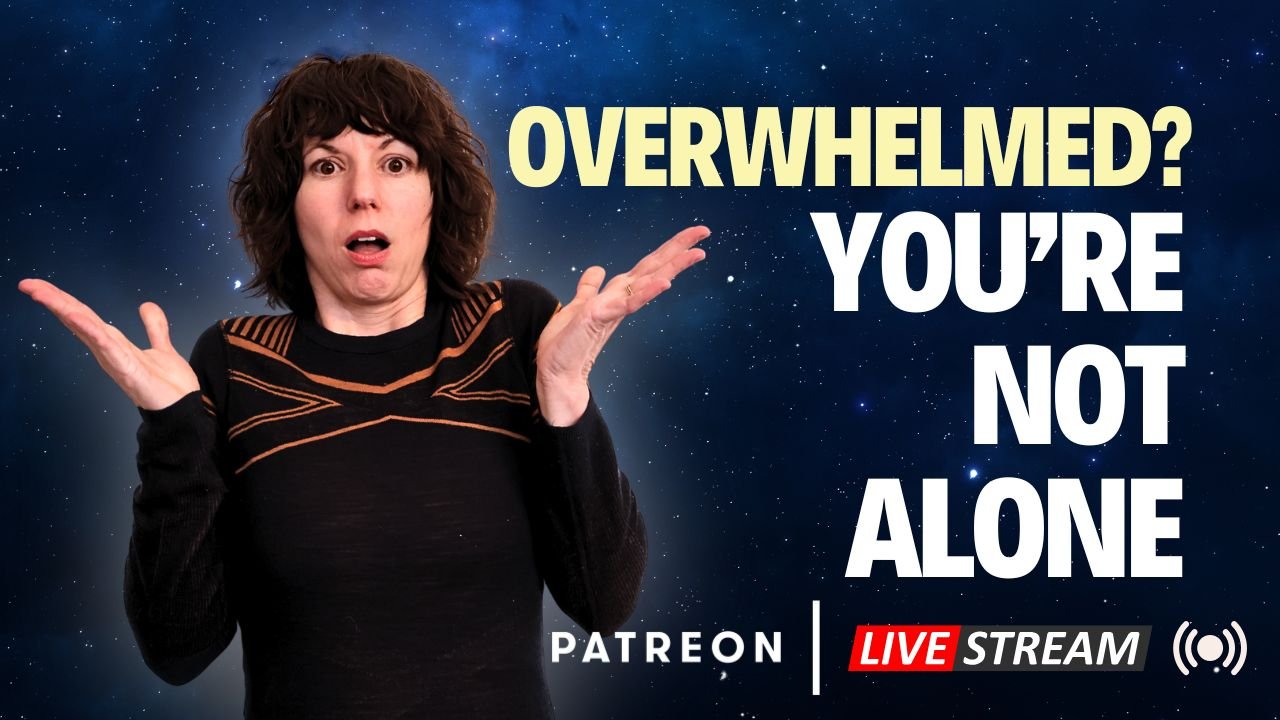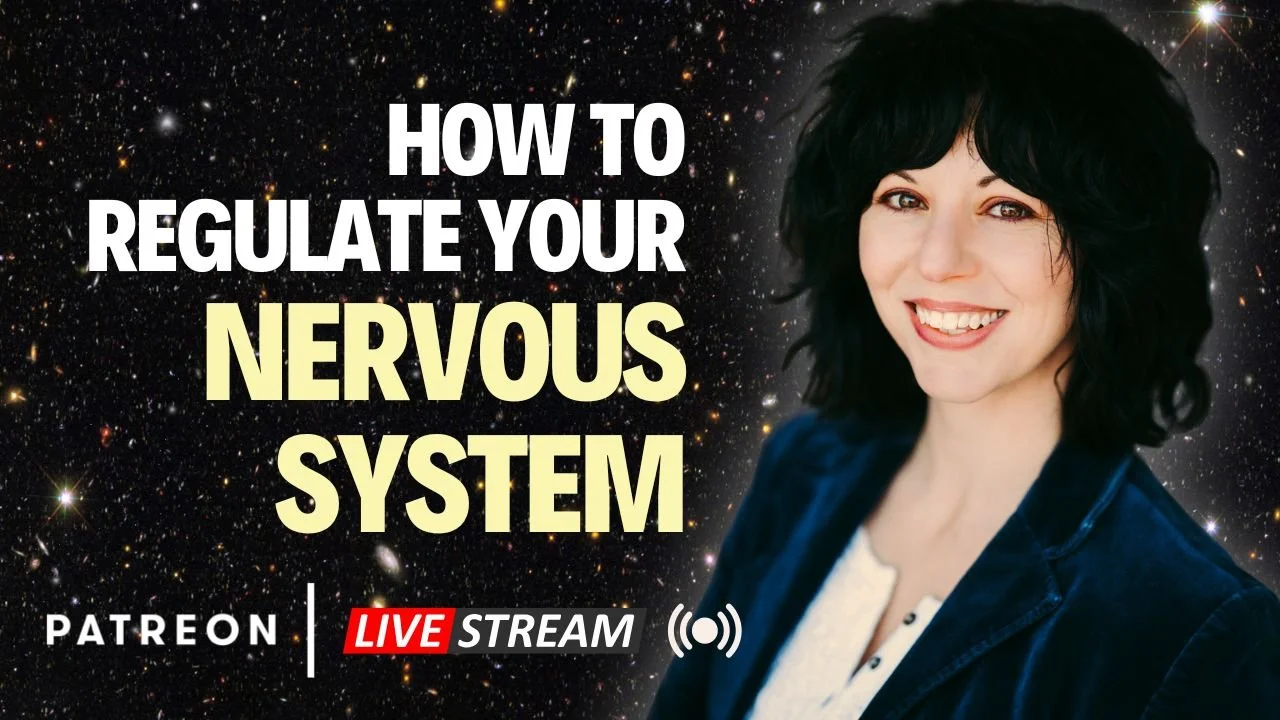9 Tips to Help Unlock Focus and Creativity
Any of us may be struggling with attention and focusing issues due to technology and the normalized, fragmented, and disjointed ways in which we communicate now. Not too long ago, all we had were phones or letters, y'all. Then, we added voice recorded messages, beepers, cell phones, emails, and countless apps that direct message us into oblivion. It's hard to keep up.. There is so much attention to detail that we have to focus on in this modern life.
We live in a world that moves at 100,000 miles an hour with more and more detail-oriented responsibilities. If we add the effects of social media in our hands, working our brains like a gambling slot machine, not to mention the effects of blue light on our sleep, it's no wonder we're more distracted than ever. This is why I reject putting the disorder on the person. When we talk about attention deficit disorder, I prefer to put the diagnosis on the circumstances that we contend with and live with as a society and as individuals in our own lives. If you're a parent, you're not just thinking for yourself or your partner or spouse; you're quite literally thinking through the entire life and existence of your little children.
The demands and expectations of parenting today are mind-boggling compared to previous generations. Previous generations' parenting strategy was a lot of "go outside and play and come back; I'll see you when it gets dark," which is an entertain-yourself, have-your-own-kid-life, very separate from adult life strategy. Nowadays, modern parenting expects parents to be constantly involved, to attend to almost every thought, every feeling, every school event, every sports event, every dancing event, every event under the sun, to have children entertained or enrolled in activities almost constantly. Some European studies even suggest that this Americanized or Westernized go-go child-rearing is showing a similarity in children's brains that mimics what we see when we look at a war vet's brain who has been on the battlefield.
The accidental side effect of throwing so much activity and entertainment at our children is that we're valuing speed. We're valuing doing, doing, doing. We're valuing experiencing, experiencing, experiencing. As an accidental side effect, this means that we're not valuing slowing down as much. “Less is more” is a phrase we can use to drive focus as a practice.
We're not teaching centering, and we're not teaching quieting. The art of doing nothing is more of a joke than a serious undertaking, and it's affecting our collective and individual mental health. Many of my clients realize at some point in our work that they're working with me to help them slow down, to do less, to just be where they are in one spot, to practice reasonable focus day to day, moment to moment, to be able to be more still, centered, productive, and creative in life. Integrating an understanding that slow is the secret fast can feel backwards from this go-go culture. The more we slow down, spend time meditating, the more productive, focused, and creative flow we get to experience.
So here are some simple tools and strategies that I use almost constantly to drive focus, creativity, and productivity. Because I am by nature a creative scatterbrain, it was very, very hard for me to get through college. I could get good grades, and I could figure out how to be a good test taker, but managing all the different elements of getting through college or modern life was very, very hard for me. I have a very, very distractible brain.
Here are some of the tips I recommend:
Meditation
Gratitude
Food is Mood
Timer
Limit Social Media Scrolling
Brain.FM
Prioritize Sleep
Wellness Formulas like HealthyCell
Supplements/Herbs
Meditation
I'm going to start with meditation, and I hear and feel groans and eye rolls when I suggest it.
Now, why? Well, meditation is so much more than our limited Western assumptions of clearing out the mind, of thinking of nothingness. This is just one form of meditation. I was taught that this type of "nothingness" clearing the mind meditation is referred to as Vipassana. But that's not all meditation is.
Meditation is not just about "nothingness." Meditation is about training the mind muscle to be in one place, to be still, to be focused. This is something we need as a balancer to what I just previously described as what our society and work lives are doing to us, to our brains, and to our well-being. There are guided and visual meditations. I think this is going to be the year that I finally get my visual meditation deck out into the world.
All the art is complete, and it's a visual meditation technique that I use. There's also progressive relaxation, where you focus on the body. I use a lot of imagination if you've listened to my meditations. Which reminds me, I've got to work on a meditation for the show. I haven't done one in a while. So, I use a lot of imagination to help engage the inner child, to help offer healing and peace.
The more that we meditate, the more we strengthen our ability to focus. So, when I sit down and tell myself to focus, when my meditation game has been strong, it's as if that door to focusing opens up with greater ease. It's like there's a chair and a beautiful desk sitting right there, waiting for me because of that mind muscle focusing that meditation is. Meditation is a mental gym. Anybody who lifts weights or goes to some kind of workout class at a gym knows that you build muscle over time. And when you meditate, you are building up that focusing muscle, that mind muscle over time.
If you feel sheepish about jumping into meditation, or you haven't really found your style, you can always jump over to our website at emotionalbadass.com, click the store button, and download our meditation packs. Those have all of the intro music, the outro music, my explanations, or my discussion stripped down. So, it is nothing but the meditation itself.
A lot of you out there use these stripped-down meditations to fall asleep or listen to multiple meditations, just to help reprogram your brain, to help your mind slow down, relax, and receive calming guidance. That invitation to be still and peaceful is always available for you. And every season we do another pack, pulling from the previous season, so you can go there and Patreon people, grab your coupon if you're on Patreon before you grab those meditations on our site.
All right, my next tip that I have for you can drive focus and creativity and ultimately help you feel more satisfied and productive in your life. And isn't that what we really want? No matter how different we are as people, we want that kind of life satisfaction. We want to feel on top of things. We want to be moving our goals, our dreams, our desires, and our professions forward.
Gratitude
So why gratitude? How does it play into focus and creativity? Well, there's a huge, amazing, and beautiful shift that's available when I shift from "I have to do something" to "I get to do something." Practicing gratitude in action can be a game changer for life.
It's easy for us, as human beings with consciousness and ego, to be ungracious and almost anti-gratitude. We tend to complain and see life as unfair or overwhelming, which leads to overthinking. The concept of "have to" versus "get to" really came into focus for me when I had a small yoga studio in Houston. I was rushed, overworked, and frustrated with my business partner. I resented having to stop what I was doing to sweep the floor. Then, the idea that I didn't have to sweep the floor but rather, I got to sweep it, swept over me like a wave. I felt grateful and my body immediately calmed down.
This shift brought a cascade of gratitude. I was grateful for my capable arms and legs, the privilege of owning a broom and space, the dedication in my heart, and the opportunity to create a clean, clear space for my students. This shift takes us from mild resistance or even resentment to the higher vibe of generosity, service, and taking care of ourselves, our spaces, and each other. It's a beautiful shift from feeling put upon, funky, and heavy with "I have to" or "I should" or "I must." No, I get to, and I am grateful that I get to in this very moment.
I use this practice every single day without fail, because that's life. Every day gives me the opportunity to either be annoyed, complaining, and irritated, or to sink into the gratitude practice that whatever is in front of me right now, I am grateful that I am alive and I get to do this.
Food is Mood
Alright, what does this mean?
Well, for me, part of what I've figured out in recent years through elimination, dieting, and experimentation is that sugar really agitates me. It makes me crash and makes me just want to take a nap. It's like my mind can't focus on what I need to be doing or the task at hand. It just wants to keep pulling me towards a sofa, towards a bed, towards the position of becoming horizontal and drifting off.
Sugar is probably the thing that I felt the most addictive pull. If I drink a Coca Cola, I feel like a sugar monster awakens inside of me, and all I can think about is more sugar. I've also figured out that weight gives me significant brain fog and inflammation. It just makes me feel icky.
That kind of brain fog makes me feel dull and idea-less. It's like my sparky, normally excited idea maker is all of a sudden underwater. Honey in my tea and big juicy fat Medjool dates are the sugars that I have that don't seem to spark cravings and actually satiate me if I bake. Like the last thing I baked a few weeks ago was a gluten-free banana bread with coconut sugar, and I reduce the sugar by at least a quarter or a third in most recipes if I bake.
And I intentionally pair any kind of baked good with a protein, which helps my blood sugar stay stabilized, and that helps my mood stay stabilized and lifted. Lately, I've also eliminated all seed oils, which sometimes makes me very sad because it means that I can't run out and just grab some French fries from anywhere. I have to be more selective and picky, and that makes me feel like a pain in the ass to myself sometimes. But I've turned this into a gratitude practice too. Since COVID, the restaurants in my area have become wildly expensive.
And if wildly expensive restaurant food doesn't impress the hell out of me, I mildly resent the expenditure and the experience. It feels wasteful and unfulfilling. As the cost of everything has gone up, even most of our old favorite restaurant spots, we've noticed food quality and portions diminishing. I have a lot of compassion and empathy for the struggle of restaurants. I basically got through my youth working in restaurants and bars, front of the house, a little back of the house too.
But my gratitude practice says I am so grateful that I get to stay home, I get to save money, and I get to create delicious high-quality foods that totally nourish me without sabotaging my mind or my body. I make a mean home French fry, y'all. So the more that we learn to heal and really respect ourselves, and we understand that food is our human fuel and when we put better fuel in, we get better energy out, when we just allow this simple truth and we work with food, we experiment, and we really figure out what fuel our body really needs to run on. Of course, we get better focus, of course, we have better creative flow.
It's worth it. To me, the benefit of feeling so much better in mind and body is worth all of those changes. And that's what I say to myself when the critical voice really, really makes me feel like this is too much of a pain, and I should throw out all this food stuff and just kind of pig out on whatever. There's so much abundance when we allow ourselves to look at what we can have instead of over-focusing on what we can't. There's a little bit of grief there, but that's okay.
I can go through the grief of letting go of some of those old comfort foods that accidentally screw me over. I can grieve them and I can find swaps, I can find substitutions.
Timer
All right, next little tip, the tool of the timer. And I know a lot of you out there know about this tool. Anytime I suggest to somebody, they usually say, oh yeah, that is a really great tool.
So I just want to really advocate that you allow yourself to use this most simple of tools, because it's kind of like taking a breath. It feels so good. Try it right now with me. Just stop and take a really deep, full breath. You feel how nice that is?
How respectful of this body that carries us around every single moment. It's so simple and yet it's such a profound peacemaker for us. So this simple tool of the timer, very similarly. It's so useful, but it's easy to devalue as a real technique. So we want to help ourselves have more of this simplicity.
This is how we get out of survival mode and start to thrive. Mario, it's okay. It's a certain amount of right. It's a yes to bring in tools that really do bring simplicity and ease sometimes. We've had a lot of struggle, a lot of heartache, maybe a lot of trauma, maybe a lot of neglect.
That's the pattern we're trying to break, that it's always been so hard. So when you wonder, hey, why am I not using that very simple tool? I want to encourage you to shift automatically and just go right into using it. The way that the timer works to help focus is just putting it on for a very small amount of time. Now it sounds kooky, and if anybody's watching me do this, they're likely to look at me and go, Nikki, what the hell are you doing?
Why are you doing that? It's okay that they don't understand it. If I'm washing the dishes, if I'm cleaning the kitchen, if I'm doing laundry, if I'm picking up the dog poop out of the dog run, whatever sort of chore or task that I'm doing, it is so easy for me to move through the house and get distracted. I can wash three dishes and then turn around and want to put the food away and then remember to feed the cats. And then I see cat hair, and then I want to vacuum up the cat hair and it's just distractibility on steroids.
And I don't ever really feel accomplished. So the timer is my friend here. If I put five minutes on a timer, ten minutes on a timer, and I just keep repeating that timer every time it dings, it reminds me to finish the task that I'm on. So I'm washing dishes, that timer goes off after five minutes, I reset it again for another five minutes, and that ding is like, oh yeah, keep at these dishes. And I do that over and over and over again, y'all, especially if you're really smart, especially if you have a lot of emotionality in that combination.
We have a lot of thoughts. So that timer is just a grounding force. It dings, it goes off, and it brings us right back to this present moment.
Limit Social Media Scrolling
All right, my next tool, I think this is my only limiting tool on this list, but it's a very important thing to limit any social media that scrolls. I can hear the groans there too.
I know that you feel the addictive quality of that. I think we all really do. If we're honest, this is a place to really bring in some self-discipline. If you have to keep your phone in your car, if you have to lock it out of your room, if you have to get a lockbox to put it in after a certain time, to give yourself some time and space. It's actually one of the reasons why I really like being out in nature and on hikes.
I am so looking forward to spring and summer hiking because there is no service. I don't look at my phone. We don't look at any social media when we're out in the woods or camping. When you're looking at social media that scrolls, that act of scrolling actually trains your brain to look for something new every few seconds. Can you hear how that is the direct opposite of meditation?
This is why meditation is the balancer of all of us having eyeballs on social media. And for some of us, the only reason I'm on it is that this is my business. I have an online business. I have a podcast. So it's really easy to justify looking at it and looking at it, especially when part of your business is related to that.
Even then, I'm a huge advocate for my entrepreneurs out there, especially to put down that phone, put down that scrolling, and if you are scrolling, at least allow yourself to have that balancing meditation. Maybe that becomes the self-talk of permission. All right, I sure looked at social media a good bit today. Let me balance that by closing my eyes, centering, doing a little ten minutes of meditation here and there. That's the great balancer.
Brain.FM
I love Brain.FM so much, I interviewed the CEO on Episode 178. If you want to go listen to some of the science behind Brain.FM, y'all, it is science backed music that works with our brain. Okay?
It is brain training. When I get my memoir finished, I'm realizing I'm gonna have to add Brain.FM into who I think, because almost every single word that I have written has been while I'm using the focusing function of Brain.FM, in fact, I use it to write most of the episodes. I also use it to meditate because it gets my body and my brain into that meditative state with so much more ease. So it's a helper to my meditation practice. It's a guide.
It's a way to go deeper with more ease, swiftly. It also has a sleep function. So when I'm struggling to fall asleep, it's often a tool I go to just popping some earbuds in and just laying down and allowing that sleep to get my brainwaves into that sleep mode, allowing that music, that sound to train my brain towards easier sleep. If you would like to try Brain.FM, you can get a free month and 20% off with code emotionalbadass.
Prioritize Sleep
Prioritize sleep. And I know that's easy to say and hard to do, but sleep really affects everything else. It is the foundation. Our houses have foundations, right? You cannot build a strong, sturdy house on a screwed-up foundation.
Our sleep is our mental health and physical health foundation, especially if you are highly sensitive or healing a traumatized nervous system. We need good sleep like we need air. It's just that if we don't get air for a few breaths, we know damn well that we better get some air right now. Sleep is a little different, so it's easier to convince ourselves that the need for sleep is less than the need for air, isn't it? Sleep is a mega-priority for me, and it has been a cornerstone of my body's ability to let go of so many physical symptoms associated with what was my lifelong PTSD.
I don't believe I could have healed the constant anxiety I was in and the massive startle response that my body would exhibit without good sleep. There's a reason that sleep deprivation is a torture technique. We can become psychotic if we don't sleep for a few days. We have a hustle culture that has created an ego-driven boasting of grinding without sleep, and we really can't endure with less sleep. I endured with less sleep all through my adolescence and all through my 20s.
But is that our best strategy to endure? If we've been enduring life, we've really been in survival mode. So this just brings me back to Brain.FM to help us sleep, to help us wind down. I firmly believe that a significant problem with our mental health collectively and individually is not having a culture that honors, prioritizes, and gets really good sleep.
Wellness Formulas like HealthyCell
It's our newest sponsor. Maybe you've heard one of the commercials that we've aired. You've heard me talking about it already. I was super excited when they wanted to work together, and they were excited to work with me because I understand how foundational sleep is, and that's probably one of my two favorite formulas from HealthyCell.
I took their focus blend before writing this episode, and wow, the words just flowed out of me. And I find it so satisfying to feel sharp and to be able to whip my ideas out with clarity. So I love their focus and recall blend. They also have a REM sleep formula.
So in terms of focusing, these are the types of tools, and every little bit helps. I like it because it's over the counter, it's all natural, and it's easy. It feels really good in my belly because sometimes my belly doesn't like certain supplements. So many people go the route of medicating or supplementing for anxiety and for depression. I very much wonder if focusing on better sleep wouldn't help more than medicating the symptoms.
If you want to try these formulas I'm talking about, or get more information about HealthyCell, you can go to healthycell.com and use our code Badass and you get 20% off your first order.
Herbs & Supplements
All right, my final tip. I want to share some other herbs and supplements that I use, and I do keep a little private apothecary for myself to use. I really like the empowerment of noticing how I feel and just helping support myself throughout the day. I think my inner child likes that too. That grown-up me is willing to tend to what she needs in such a way and give all these little ways of just helping the day in our lives be a little easier, a little more focused, a little more productive, a little more creative, a little more moving the needle forward on all of our to-do list items.
Rhodiola Rose is one of my favorite herbs. It tastes and smells rosy, just like the flower. It gives a lift. It's like taking a little bit of caffeine without that jittery caffeine feeling. It's something that if I have coffee in the morning, I don't have so much anymore. I typically have Earl Grey tea. You can put it in your morning hot beverage, whatever that is, just a little dropper. I tend to use tinctures that come from the company Herb Farm, and we don't have any association with Herb Farm, but they are HerbPharm, and that's a company that you can really trust to source the herbs appropriately so that you can trust that you're not getting snake oil. One of the reasons that I really love their company is because you can try so many different herbs and different blends for very, very low cost. Most of their offerings can be tried for $10 or $15.
And as highly sensitive people, we can really fine-tune our needs and feel empowered about putting things in our bodies that work really well with our bodies, instead of harshly with any negative side effects. I'm also a big fan of popping a vitamin B complex in the early afternoon, especially for women. There's a lot of science that backs that. We need a lot of vitamin B. Vitamin B is water-soluble, so it's constantly leaving our system.
When I take a vitamin B complex in the early afternoon, it lifts my mood. It gives me energy. I don't feel jittery, I don't feel up. It doesn't impact my sleep that night.
So when I have that feeling of “I kind of want another caffeine”, it's such a beautiful swap. Instead of going for that afternoon caffeine to grab that afternoon vitamin B. Kava is another herb that I really love. If you're in recovery, if you have given up alcohol, if you just want to minimize alcohol and are playing around with being sober, curious.
Kava is an herb that comes from the South Pacific. You typically see it twice. It's Kava Kava. K-A-V-A. I also use the tincture from Herb farm. You just drop it in water, and it looks like witches' brew. It gets a little smoky, so my inner child doesn't hate that either. It can taste a little tingly on the tongue and going down the mouth, and that's not having an allergic reaction to it. That's how it feels. People in the South Pacific have been chewing the leaves of the kava plant basically since the beginning of time.
It's something that calms anxiety. Here in Denver, we have Kava Kava bars. So if you're in recovery and are trying to steer clear of alcohol, there's absolutely no alcohol offered in a kava bar. So it's really interesting to go into some of those places and feel that vibe of people hanging out in a bar-like atmosphere. Absolutely alcohol-free.
There's also kava tea, so it can be as simple as just brewing a cup of tea. And that's probably my final little tip. I am very intentional with the herbal teas that I drink. They feel cozy, so it feels like more than just a drink that I'm having. It's a little act of self-love wrapped up in that cup of tea.
Basically, handing somebody a cup of tea is a way to say, 'I love you, I care about you, I want you to feel warm and cozy.' So, offering a cup of tea is an act of self-care. Chamomile is really amazing. It's so calming and anti-inflammatory.
Ladies, it's something I drink a lot around my cycle. It helps with that puffiness and inflammation that our cycles can bring on so easily. Peppermint tea is another tea that I always want to keep on hand. If my tummy is rumbling or if anything just feels a little sour or upset, whether that's from something I ate or anxiety I'm having, peppermint tea is so calming and helps with digestion.
Ginger tea is something else. Ginger is great for nausea and calming. So if I'm sick, I love to have a ginger tea for a sore throat with some lemon and honey. And when we feel better and take better care of ourselves, that tea becomes its own little meditation and ritual.
So, I hope that you can also hear how these things that I suggested all play off of each other. It's been so clear to me for a very long time in this profession that it's never just one thing that helps us figure ourselves out. It really is this combination. I am spacing on the book that I pulled this from, but I know some of you out there will know. Maybe you can let me know on Instagram.
There's this concept of allowing ourselves to be 1% better, to improve by 1%. And if we have that mindset day in and day out, in our self-care, productivity, and focus, taking bigger, fuller, more frequent, and deeper breaths, that's where we make massive gains when it comes to something like focus. This world is constantly pushing and pulling against us, pulling us off our center, so it really is in these almost insignificant practices that we can cultivate a more focused, creative lifestyle and way of being. And if you are a creative being with a lot of ideas and passion, or if you had a tough childhood, this is its own sort of honoring self-care, self-love, and ultimately, self-respect for this one precious life.
Episode Tags
- ADD 1
- Abuse 17
- Alcohol 3
- Anger 11
- Archetypes 1
- Bullying 6
- Childhood 37
- Codependency 11
- Covid 4
- Crystal Catalina 4
- Depression 15
- Detachment 2
- Disassociation 4
- Emotions 75
- Existentialism 2
- Faith 1
- Family 28
- Fatigue 4
- Focus 3
- Gratitude 11
- Grief 14
- Guilt 2
- Healers 7
- Healing 52
- High Sensation 4
- Hope 1
- Hypervigilance 7
- Introverts 6
- Lonliness 9
- Love 3
- Manifesting 5
- Manipulation 20
- Masculinity 1
- Men 1
- Mindfulness 39
- Money 10
- Music 3
- Nutrition 2
- Overthinking 8
- PTSD 13
- Parenting 12
- People Pleasing 10
- Perfectionism 6
- Pets 4
- Relationships 21
- Resiliency 14
- Sadness 1
- Self Esteem 19
- Self Love 11
- Self Respect 1
Upcoming Events
Episode Tags
- ADD 1
- Abuse 17
- Alcohol 3
- Anger 11
- Archetypes 1
- Bullying 6
- Childhood 37
- Codependency 11
- Covid 4
- Crystal Catalina 4
- Depression 15
- Detachment 2
- Disassociation 4
- Emotions 75
- Existentialism 2
- Faith 1
- Family 28
- Fatigue 4
- Focus 3
- Gratitude 11
- Grief 14
- Guilt 2
- Healers 7
- Healing 52
- High Sensation 4
- Hope 1
- Hypervigilance 7
- Introverts 6
- Lonliness 9
- Love 3
- Manifesting 5
- Manipulation 20
- Masculinity 1
- Men 1
- Mindfulness 39
- Money 10
- Music 3
- Nutrition 2
- Overthinking 8
- PTSD 13
- Parenting 12
- People Pleasing 10
- Perfectionism 6
- Pets 4
- Relationships 21
- Resiliency 14
- Sadness 1
- Self Esteem 19
- Self Love 11
- Self Respect 1













